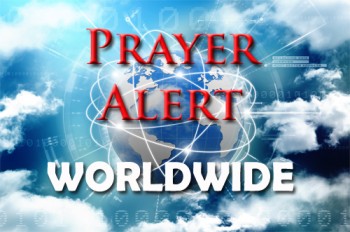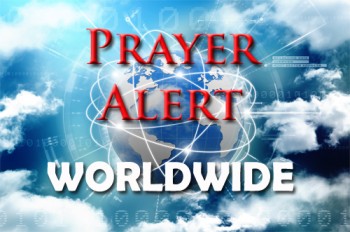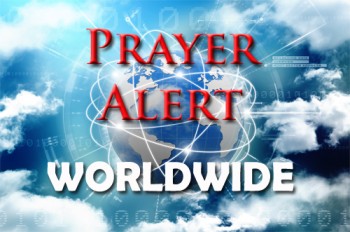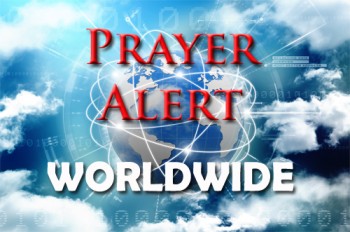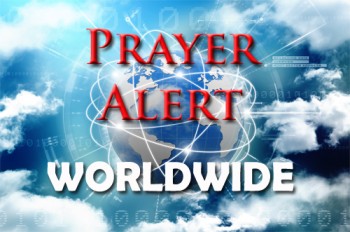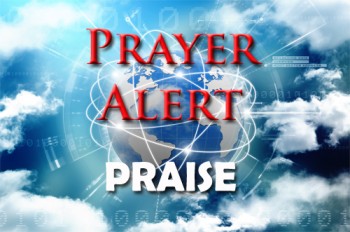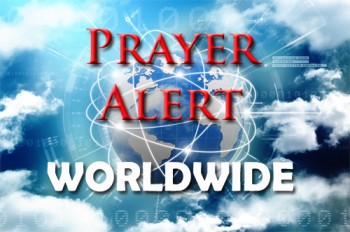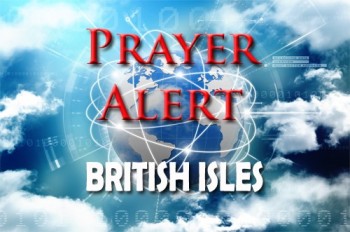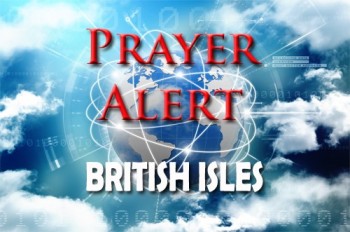
David Fletcher
David Fletcher is Prayer Alert’s Editor.
He is part of a voluntary team who research, proof-read and publish Prayer Alert each week.
If you would like to make a donation towards our running costs, please click here.
President Bolsonaro's coronavirus strategy of ‘putting economy first' is putting thousands of lives at risk. He calculates that the number of deaths will be less costly than the inevitable recession caused by an economic shutdown. Brazil's poorest communities lack refuse collection, have water shortages and open sewers, and are very densely populated. These are perfect conditions for the virus to proliferate. Bolsonaro's televised national address, calling the virus ‘a little flu’, was condemned by business leaders and politicians. Two of his tweets were removed for ‘violating rules’ and defying international guidelines. Bombastic media appearances, dubbed ‘Brazil can't stop’, encouraging citizens to get back to work and downplaying the virus threat, were quickly taken off air. The majority of Brazil's elderly live with family members or someone else who is not their partner.The ‘deny’ strategy is expected to produce a situation worse than Italy in two or three weeks, and a collapsed health system.
Lockdown has reduced vehicle traffic across India, leading to a drop in air pollution in over 90 cities, including Delhi. Welcoming the reduced pollution, environmentalists are now urging the government to treat it as a ‘wake-up call’ and stop its ‘obsession’ with development at the cost of the environment. Shutting down of industries, construction and traffic have contributed in improving the air quality. Rain is also helping, but the curbs on local emissions are playing a significant role in recording air quality in the range of good in 51 cities and satisfactory in 51 cities.
As coronavirus ravages the world, many are now watching Wuhan slowly emerging from two months’ complete lockdown - the population cautiously (with masks and gloves) moving about. The world is now in an extraordinary and precarious situation, watching Wuhan for a glimpse of what might lie in store for the rest of us. Will there be a second coronavirus wave there? Almost inevitably yes, but how big a wave and are hospitals better prepared? How will the Chinese government respond to this second wave, after its mismanagement and misinformation of the first outbreak? Will they keep damaging information secret? A recent report on the number of ash urns stacked at Wuhan funeral homes put the true death toll at over 40,000, not the official 2,500. Pray for transparency in communication and sharing of strategies, in China and across the nations, in order to craft effective responses to unfamiliar challenges.
A Christian brother asks us to pray for Pakistan, where this crisis will play out very differently. Prime minister Imran Khan said he won't be able to lock down cities fully because of the poverty. Citizens simply have to go to work each day to feed their families. Also, crowded living conditions and limited healthcare facilities will mean the virus spreads rapidly, causing enormous loss of life - many times greater than we will see in the West. However, in the middle of this awful pandemic, we may have the greatest opportunity and responsibility that the Church has ever had to share God’s love with the people of Pakistan. People who are angry, frightened, grieving and in despair have questions about life and death, why God let this happen, why prayers were not answered. This is potentially a time for the gospel like no other in history.
Coronavirus could not have come at a worse time for millions of Zimbabweans struggling with a deepening economic crisis, soaring food prices, stagnant salaries, water shortages and daily power blackouts. Early on 29 March Stewart Dzivira, his wife and their two-year-old son left Glen View to travel into Harare. For days now he has been unsuccessful in trying to get maize meal, a staple that has been in short supply following devastating droughts two years ago. He was not alone: hundreds of others were queueing on the eve of the three-week lockdown to contain coronavirus. Frequent thorough hand-washing with soap and water is the basic weapon against coronavirus, but in Harare alone one million people are without running water. Electricity is also scarce. Stewart said that without food ‘we’ll die of hunger.’
By 2 April, there were 5,999 recorded coronavirus cases in Africa. 374 were in East Africa, a region already severely impacted by a plague of locusts and a food security crisis. WHO warned that Africa must ‘wake up’ and ‘prepare for the worst’ against the coronavirus pandemic. The UN has warned of an impending food crisis in East Africa, and concern is growing for Christians in affected regions, many of whom already face marginalisation and persecution for their faith. Pray for all people in East Africa as they are doubly tested by the coronavirus outbreak and the terrible locust swarms. Ask God to meet their needs and may they be comforted in the knowledge of God’s love for them. South Sudan is currently virus-free; may it remain so.
Currently 3,000 children are uniting to pray for the nations on Whatsapp. Royal Kids Ministries, started in Chennai in 1991 with one orphanage, have expanded into Children House of Prayer (CHOP), with prayer rooms at many orphanages. Their vision is Malachi 4:6: ‘He shall turn the heart of the fathers to the children, and the heart of the children to their fathers’. ‘The aim is to raise up young intercessors as worshippers and as a prayer army to cry out for revival, and also to call forth spiritual parents to support and cover children with prayers: in essence, to bring revival through orphans.’ This vision has spread; today there are CHOP in eight countries praying every day, and in eight more praying once a week. The aim is to have every orphanage turned into CHOP prayer rooms in every nation of the world.
Malcolm Duncan, the key speaker at the recent WPC prayer conference, took 200 intercessors on an encouraging journey of encountering the glory of God. All across the UK churches are being called to prayer as never before. Virtual prayer meetings are taking place as the Holy Spirit raises up an invisible net of prayer, here and in many other nations. Each one of us is part of this! Our prayers for our loved ones, our streets and communities, our nations and their leaders and our world, are part of this. Ask the Lord what He wants you to pray into and follow His leading. Those not at the conference can listen here
Wherever you are reading this across our UK nations and across the globe, no doubt you are in some stage of ‘physical lockdown’ because of the coronavirus pandemic. Our culture of daily life and our gathered worship patterns are being reshaped. We are all being forced to look at what are the real priorities in our lives. But the wonderful truth is that as followers of Jesus Christ we can never be in ‘spiritual lockdown’. There is no situation, no place, no time zone, no age limit, no health scare, no financial pressure, nothing that can separate us from the love of Christ (Romans 8:38-39). So today and over these coming weeks, we want to encourage you to keep remembering that our God - the Father of our Lord Jesus Christ - is on the throne, and He is sovereign over all of the shaking.
The Queen said ‘We salute you’, after 405,000 individuals stepped up to support the NHS just two hours after the government made an appeal for helpers to deliver medicines to the vulnerable and do shopping. Boris Johnson said the number of volunteers was equivalent to the population of Coventry. Meanwhile people are finding new ways of being together while apart. Isolated elderly are becoming adept at meeting friends, neighbours, and prayer groups by Skype, Zoom and Messenger. There are wonderful examples of acts of kindness, generosity, and compassion that demonstrate the underlying unity that humans feel for each other. We can pray according to Psalm 5:11 that God’s protection will spread over all who are currently volunteering and showing unity and kindness.

